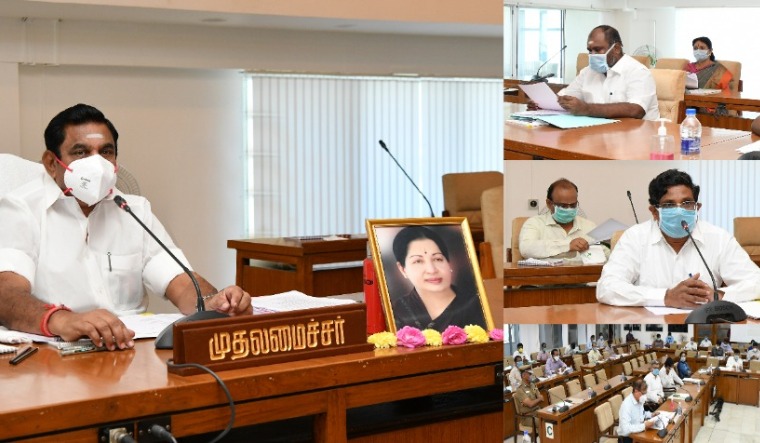The total number of coronavirus cases has continued to surge in Tamil Nadu, with the state government constantly following up on the Tablighi Jamaat (TJ) cluster, members of which were part of the Nizamuddin Markaz in Delhi.
On Thursday, 74 more patients from the cluster tested positive for coronavirus, prompting the state Chief Secretary, K. Shanmugam, to call for a meeting with leaders of the Muslim community at the state secretariat at 3pm on Friday. The meeting, according to sources in the secretariat, has been scheduled in a bid to contain the spread and ensure that the pandemic doesn’t transform into a religious issue.
“The chief secretary has called us for a meeting. We feel hurt that it’s being turned religious. But I am convinced that the state government has called for a meeting to hear us,” tells an imam of a mosque on Chennai’s Anna Salai, who has been called for the meeting.
But Tamil Nadu seems to have realised very late the need for tracing and tracking the people and the contacts of those of who attended the Tablighi Jamaat meeting in Delhi. According to health secretary Dr Beela Rajesh, “1,103 who participated in the conference have been tested, and among them, 264 have tested positive.” The government has already started testing the delegates who went for the Jamaat event and hopes to finish testing all the delegates by Friday evening.
The first person linked to the Tablighi Jamaat conference was traced by the authorities at Coimbatore Airport on March 15.
A Thai national, identified as Donrosak Khamidoi from Songkhla in Thailand, had arrived in India on March 6. He had participated in the Nizamuddin event and later travelled to Erode along with a group of people by train. According to reports, he was screened at the Coimbatore Airport and was later taken to the Coimbatore government hospital as he was running a high fever. He later died at the hospital on March 17 due to diabetes, foot ulcer and renal failure.
However, according to the authorities, he tested negative for coronavirus. The health department then began tracking his contacts and traced a group of 11 people on March 16, who travelled with him. As a continuation of this, a group of people associated with Tablighi Jamaat from Afghanistan and Kazakhstan was traced in Vellore and sent back to Delhi on March 20.
Following this, on March 21, two other Thai nationals, who travelled with Donrosak, tested positive for coronavirus and were quarantined in Erode. At least nine streets in one particular area called Kollampalayam in Erode was cordoned off.
On March 24, again, the government traced yet another group including eight Myanmar nationals and 12 Indonesians at Vellore and they were also sent back to Delhi with the help of the police.
Again on March 25, there was a surge in the number of coronavirus patients in Tamil Nadu as four Indonesians and their local guide tested positive and were quarantined in Salem. Following the surge in numbers, an internal circular was sent out within the police department to track and trace everyone who was part of the Tablighi Jamaat conference in Delhi. The circular was sent to all the four zones in Tamil Nadu.
On March 30, Chief Minister Edappadi K. Palanisami after a review meeting with the authorities, without naming the conference, said, 19 more tested positive in Tamil Nadu and that they had attended an event in Delhi. On March 31, health secretary Dr Beela Rajesh for the first time spelt out that 1,103 people attended the conference. The government then sent out an open call to those who attended the Tablighi Jamaat conference to come and report for testing.
And now 15 days after the first death of a Nizamuddin event participant, the Tamil Nadu government has called for a meeting with Muslim community leaders to contain the spread of coronavirus.



